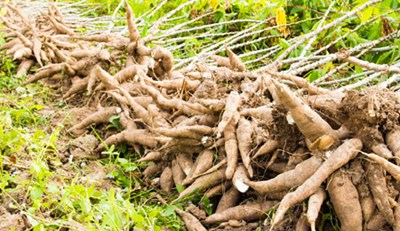Challenges associated with electricity generation in sub-Saharan Africa may soon be a thing of the past following the formation of a consortium that will use thermal technology to generate power from agricultural waste.

The consortium, which appears to have perfected use of agriculture waste such as cassava peel to generate electricity, is led by PyroGenesys and has University of Leicester, African Agricultural Technology Foundation (AATF), Mobinet, Babban Gona Farmer Services, ICMEA-UK and Koolmill Systems as partners.
The consortium is developing low-cost, environmentally friendly technology to transform the way off-grid communities in Nigeria receive electricity through its innovative PyroPower technology.
The project, that involves use of cassava peels, is already being implemented in Osun, Oyo, Ogun, Edo, and Delta states of Nigeria with plans for expansion into other states and countries in Africa.
A number of African countries such as Nigeria are currently facing an acute power challenge with the state-supported power generating facilities producing less than 4000mw electricity for the 200 million people yet the country has the comparative advantage as the largest cassava producer in the world.
‘This is a great innovation as it reduces post-harvest losses in cassava and generates additional income for cassava farmers who will now sale cassava waste and get income,” said George Marechera, the Managing Director of Agridrive, a Kenya-based agricultural firm.
He added that the consortium was initiated to utilise agriculture waste for clean energy and feasibility study on the use of crop wastes (cassava) to generate energy on one of the activities carried out from June 2019 to June 2020 and it showed that cassava peels have the highest energy potential if used .
“This feasibility study was based on the cassava mechanisation and agroprocessing work that AATF is currently implementing in Nigeria.” Marechera said once commercialised, the initiative will benefit over 1.5 million cassava farmers through increase of income from sale of cassava peels.
‘’This work will also benefit more than four million households who will access clean and affordable energy,” he added.
According to him, AATF supports transformative agriculture development for wealth creation for smallholder farmers in sub-Saharan Africa, adding that AATF supports cassava productivity and especially management of post-harvest losses.
PyroGenesys’ Chief Executive Officer, Simon Ighofose, said: “PyroPower turns agricultural waste materials into renewable heat and electricity using an advanced thermal technology called pyrolysis, meaning no more fossil fuels.
“Waste agro-residues are converted into biochar smokeless fuel briquettes for cooking, replacing firewood and wood-derived charcoal use, a cause of severe deforestation and human health issues,” said Simon, adding that the consortium will test the case for installing the first PyroPower pilot plant in Nigeria, using satellite geo-spatial data analysis to identify suitable locations for future PyroPower installations.
“We’ve set an initial target of installing 100 commercial systems to generate clean, low-cost electricity over the next two years. We’re also looking at selling electricity using Mobinet’s SIMPAY mobile payment system in Nigeria for cashless transactions.”
There are currently 634 million people without electricity in Africa. It is estimated that in Nigeria, only one in five people has access to power from the electricity grid. This leaves four in five people living in urban and rural communities having to fend for themselves with makeshift and localised power solutions, a situation that the newly formed consortium can leverage on to expand the country’s energy mix profile.
